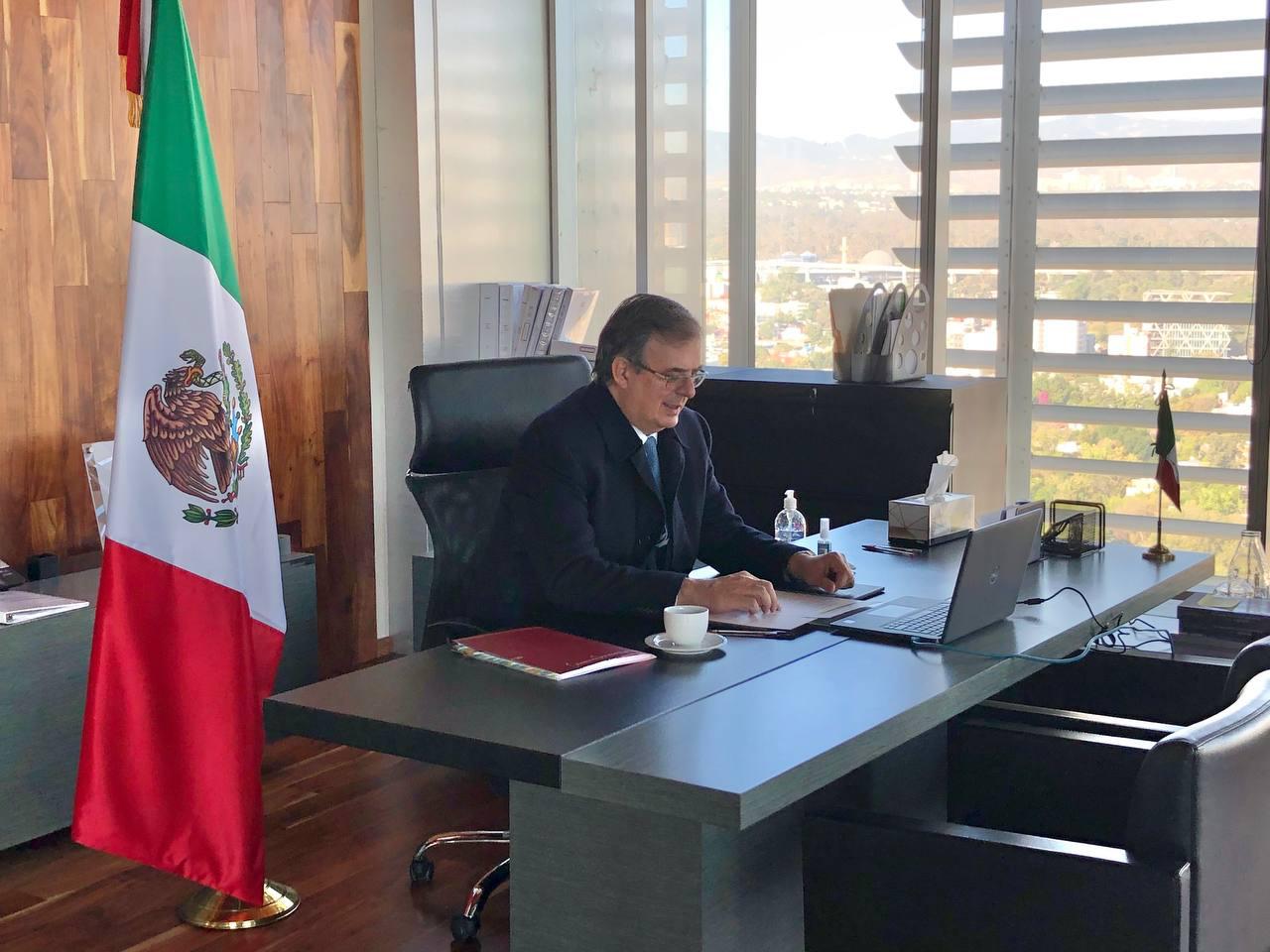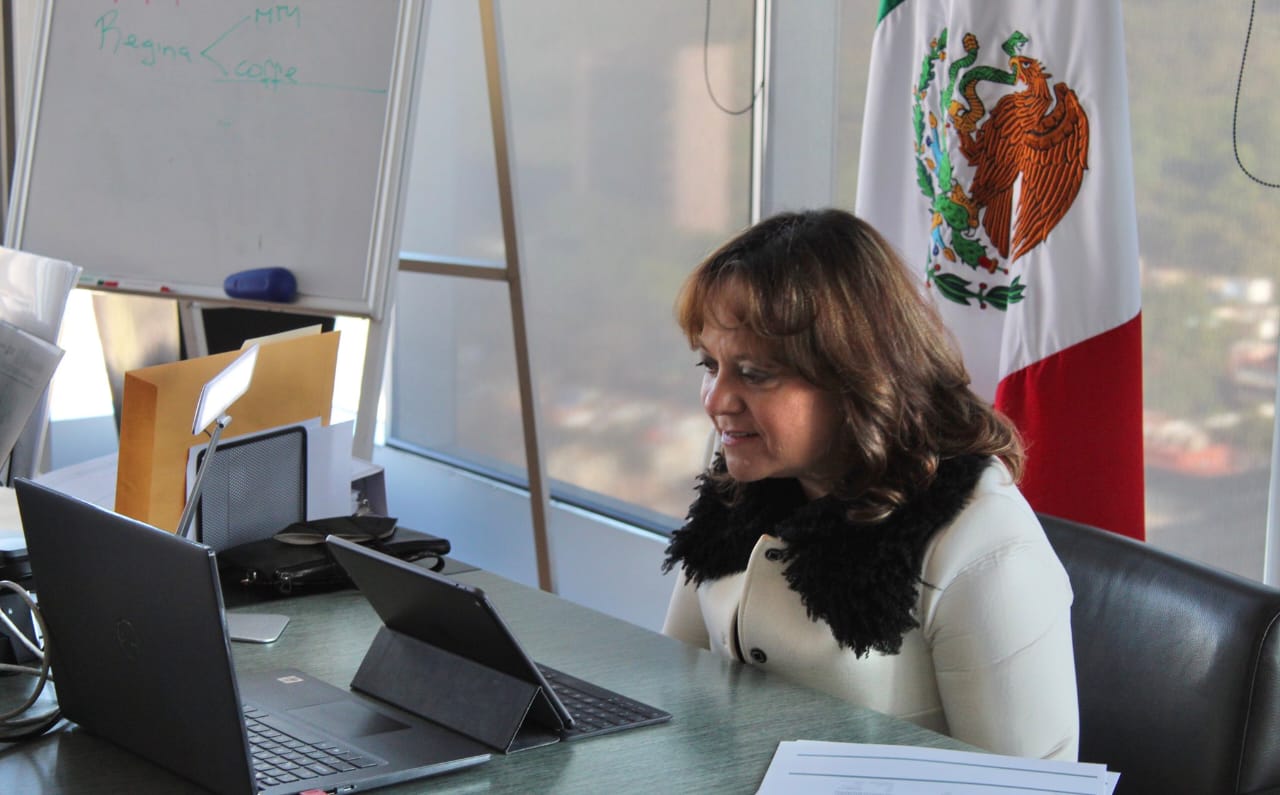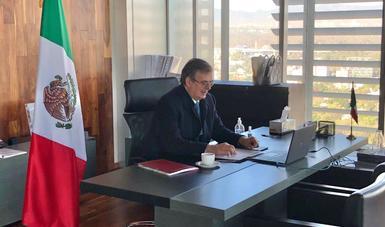- The meeting was chaired by Foreign Secretary Marcelo Ebrard and attended by WHO Director-General Tedros Adhanom Ghebreyesus.
- Its main goal was to strengthen the region's communication with the WHO, and to learn first-hand about the progress made by the ACT-Accelerator (ACT-A).
As President pro tempore of the Community
Latin American and Caribbean States (CELAC), the Government of Mexico took part in a ministerial meeting on “Promoting equitable access to COVID-19 tools in Latin America and the Caribbean through the ACT-Accelerator.” The World Health Organization (WHO) participated in and supported the meeting.
The virtual meeting was chaired by Foreign Secretary Marcelo Ebrard. It was attended by WHO Director-General Tedros Adhanom Ghebreyesus; the Director of the Pan American Health Organization (PAHO), Dr. Carissa F. Etienne; Norwegian Secretary of State for International Development and co-chair of the ACT Accelerator Facilitating Council, Aksel Jakobsen; the Undersecretary for Multilateral Affairs and Human Rights, Martha Delgado; Mexico's National Coordinator for CELAC, Efraín Guadarrama Pérez; and directors of the main international organizations involved in the ACT-Accelerator.
Also present were health and finance ministers from the Latin American and Caribbean countries. The goal of the meeting was to strengthen the region's communication with the WHO, and to learn first-hand the achievements of the ACT-A, a partnership launched by WHO in April 2020. The participants also discussed current challenges and how to advance regional cooperation to meet the goals of the ACT-A, without leaving anyone behind. The ACT-A has driven global cooperation to develop effective vaccines, identify treatments and other tools to fight COVID-19 effectively, including the Covax initiative.
Twenty-seven billion dollars are needed in 2021 to achieve the ACT-A goals, so innovative financing mechanisms and the involvement of the private sector should be sought. In addition, the participants stressed the tragic loss of human lives and the impact on the global economy, which contracted 4.4% in 2020 and will contract 5.2% in 2021. Funding the ACT-A not only helps save lives, it also makes economic sense by helping the global economy to recover.
The senior CELAC officials and ministers commended the WHO and the Pan American Health Organization (PAHO) for their roles, and welcomed the significant results of the ACT-A to date. They reiterated their commitment to equitable global access to the tools to tackle COVID-19 and the importance of working together to overcome any challenges that may delay timely access to them, particularly in the Latin American and Caribbean region. Lastly, they agreed on the need to strengthen coordination with WHO, PAHO, and the Accelerator to overcome the crisis, save lives, and begin the economic recovery as soon as possible.
As the most representative forum in the region, CELAC brings together the 33 countries of Latin America and the Caribbean. It is a forum for political dialogue, consensus and cooperation that addresses the challenges facing the community as a whole, and that allows the region to speak to the world with one voice.


